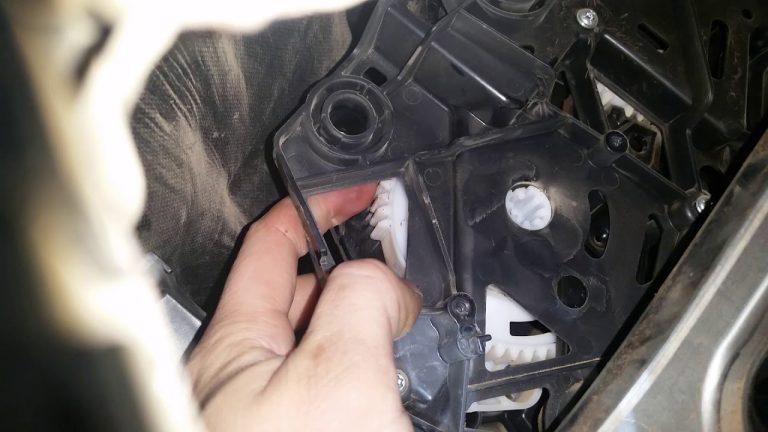F150 Ecoboost Hesitation When Accelerating
Last Updated on by David Jon
Across the board, the Ford F150 Ecoboost is an undeniable powerhouse, but some models have shown a tendency to occasionally falter when it comes to acceleration. This unique challenge can leave drivers feeling uneasy and can compromise both the performance and safety of the vehicle. This article aims to address this issue, providing valuable insights on why this might be happening and offer solutions to rectify it. Backed by extensive research and practical knowledge, this comprehensive guide is an invaluable resource for Ford owners, DIY enthusiasts, and professionals in the field of automobile maintenance and repair.

Understanding the F150 Ecoboost Hesitation Issue
Operating a vehicle smoothly is dependent on a variety of interconnected systems working efficiently and in harmony. In some instances, however, you may experience a condition known as hesitation when driving, which is particularly prevalent in some models, such as the F150 Ecoboost.
What is F150 Ecoboost Hesitation?
In the simplest terms, the F150 Ecoboost hesitation refers to the momentary lack of response in acceleration despite pressing on the gas pedal. This glitch—a delay in vehicle response to acceleration—can be unsettling, leading to a less than optimal driving experience.
Common Indications of Hesitation During Acceleration
While the most noticeable sign of hesitation during acceleration is a delay in vehicle response, some additional indicators are worth noting. These could include inconsistent vehicle speeds, unpredicted lurching, or stuttering, even when the accelerator pedal is pressed consistently. Such symptoms usually hint towards the F150 Ecoboost hesitation.
Underlying Causes of Hesitation When Accelerating
As with any mechanical issue, several interconnected reasons contribute to the hiccup in acceleration known as hesitation. Understanding these causes can help in diagnosing and addressing the issue efficiently.
Impact of Engine Misfires
Engine misfires can significantly impact the acceleration performance of your vehicle. A misfire means that the engine is not firing on all cylinders during its operation. This condition disrupts the smooth flow of power and can cause the hesitation experienced during acceleration.
Ignition Related Problems
Problems associated with the ignition system, such as a faulty spark plug or ignition coil, can also lead to hesitation when accelerating. Such faults can disrupt the combustion process critical to power the vehicle, leading to the delay in acceleration, or worse, stalling.
Fuel System Issues
The fuel system plays a pivotal role in the efficient running of the vehicle’s engine. Errors within this system such as bad fuel injectors, clogged fuel filters, or fuel pump failures can cause inadequate fuel supply to the engine, leading to poor acceleration and the characteristic F150 Ecoboost hesitation.
Air Intake and Exhaust System Failures
A vehicle’s air intake and exhaust systems are crucial for maintaining optimal engine health. Failures, blockages, or issues within these systems can hinder air-fuel mixtures vital for combustion, thereby causing engine hesitation, especially during acceleration.

Engine Misfire Implications on F150 Ecoboost Hesitation
Symptoms of Engine Misfire
The tell-tale signs of engine misfires include sudden jerks during acceleration, inconsistent power during driving, the engine sounding irregular or rough when idle, and increased exhaust emissions.
Potential Damages from Engine Misfires
If left unchecked, frequent engine misfires can lead to severe damage. These damages could involve compromised catalytic converters, destroyed ignition coils and modules, degraded oxygen sensor performance, and even severe damage to the engine itself.
How Misfires Affect Acceleration
A misfire disrupts the engine’s regular rhythm, leading to the engine not producing power for a brief period. This pause negatively impacts the smoothness of the drive and often results in the hesitation felt during acceleration.
Ignition-Related Causes of Hesitation
Problems with Spark Plugs
Spark plugs are integral to the ignition system. Old, worn out, or faulty plugs can disrupt the spark necessary for combustion, thus creating a delay in acceleration.
Electric System Malfunctions
The electrical system of a vehicle is heavily intertwined with its ignition system. Malfunctions such as short circuits, corroded connections, or damaged wiring can hinder the smooth operation of the ignition, resulting in hesitation.
Issues with Ignition Coils
Ignition coils are a part of the ignition system that amplify the battery’s low voltage to generate the high voltage needed to fire the spark plugs. Issues with these coils can negatively impact the vehicle’s acceleration capabilities.

Fuel System Issues Resulting in Hesitation
Bad Fuel Injectors
Fuel injectors are responsible for delivering fuel to the engine in correct amounts and at the right time. When they malfunction, the engine doesn’t receive the appropriate amount of fuel, causing hesitation in acceleration.
Implications of Clogged Fuel Filter
A clogged fuel filter can restrict the flow of fuel to the engine, leading to inconsistencies in the engine’s performance and hesitation during acceleration.
Fuel Pump Failure
The fuel pump plays the role of delivering fuel from the tank to the engine. Once it fails, the fuel supply is cut off, severely affecting the acceleration capabilities.
Effects of Poor-Quality Fuel
Using poor-quality fuel can result in unwanted deposits in the fuel system that can lead to blockages, damaging the fuel injectors and causing hesitation during acceleration.
Air Intake and Exhaust System Failures
Implications of Dirty Air Filters
Air filters help to keep out contaminants from the engine. However, dirty air filters can reduce the airflow, leading to poor combustion and hesitant acceleration.
Mass Air Flow Sensor Failure
The Mass Air Flow Sensor measures the amount of air entering the engine. Its failure can alter the air-fuel mixture, affecting the combustion process and causing acceleration issues.
Abnormalities in the Exhaust System
Abnormalities or blockages in the exhaust system prevent the release of exhaust gases. This backup could result in reduced engine power and hesitant acceleration.

Methods to Diagnose F150 Ecoboost Hesitation
Utilizing Onboard Diagnostic (OBD) Tools
Onboard Diagnostic (OBD) tools can shed light on what’s possibly causing your acceleration issues. These tools are designed to capture and report on problems within the various systems of your vehicle.
Visual Inspections and Manual Testing
Sometimes, a thorough visual inspection of individual components can reveal issues that may be causing hesitation. This could include checking the spark plugs for wear, checking the fuel filters for clogs, or inspecting the air filter for excessive dirt.
Seeking Professional Diagnosis
When in doubt, it’s always advisable to seek out a professional diagnosis. Mechanics have the expertise and the tools to diagnose and accurately pinpoint the source of issues like F150 Ecoboost hesitation.
Common Maintenance and Repairs for F150 Ecoboost Hesitation
Regular Engine Tune-ups
A routine engine tune-up includes the inspections and replacements of key components and is essential for keeping your vehicle running smoothly.
Spark Plug Replacement
Replacing old, worn, or malfunctioning spark plugs can significantly improve acceleration and prevent hesitation issues.
Fuel System Cleaning
Cleaning the fuel system periodically can help maintain optimal fuel flow to the engine and stave off potential acceleration hesitation.
Air Intake and Exhaust System Maintenance
Maintaining the air intake and exhaust systems, including replacing dirty air filters and ensuring there are no blockages in the air path, can significantly improve vehicle performance.

Preventive Measures to Avoid F150 Hesitation
Regular Vehicle Servicing
Regular servicing of your vehicle helps identify potential issues before they escalate.
Use of High-Quality Fuel
Using high-quality fuel reduces the risk of underperformance and can prevent the issue of F150 Ecoboost hesitation.
Timely Replacement of Faulty Parts
Faulty parts can lead to serious mechanical issues. Timely replacement of malfunctioning components can help keep acceleration issues at bay.
Could Hesitation When Accelerating Cause My Ecoboost to Get Bad Gas Mileage?
Could hesitation when accelerating cause my Ecoboost to get bad gas mileage? If you are facing this issue, here are some ecoboost gas mileage troubleshooting tips to consider. First, check for any air filter blockages or fuel system problems. Additionally, inspect the spark plugs and ignition coils for any faults. Lastly, ensure your tires are properly inflated and avoid excessive idling. Implementing these tips may help improve your Ecoboost’s gas mileage.
Long-term Implications of Ignoring F150 Ecoboost Hesitation
Decreased Engine Performance
Ignoring hesitation issues may lead to decreased engine performance over time. Persistent hesitation during acceleration hinders the smooth running of the vehicle.
Potential Safety Risks
Sudden moments of hesitation when driving can be risky. They can lead to unexpected scenarios that cause accidents, especially when overtaking or merging with traffic.
Higher Repair Costs in the Future
Letting minor issues slide can lead to significant, costlier problems in the future. Therefore, addressing the F150 Ecoboost hesitation issue promptly is not just good for the vehicle’s performance, but also for your finances in the long run.
The quality of your vehicle’s performance is integral for a superior driving experience. As such, understanding the F150 Ecoboost hesitation issue is pivotal for all Ford vehicle owners, DIY repair enthusiasts, mechanics, and maintenance crews. Ignoring such concerns can have far-reaching implications on safety, finances, and overall vehicle integrity. By adhering to preventive measures, addressing small glitches promptly can save you from stepping on the gas only to face a troubling, frustrating, and frightening hesitation.





